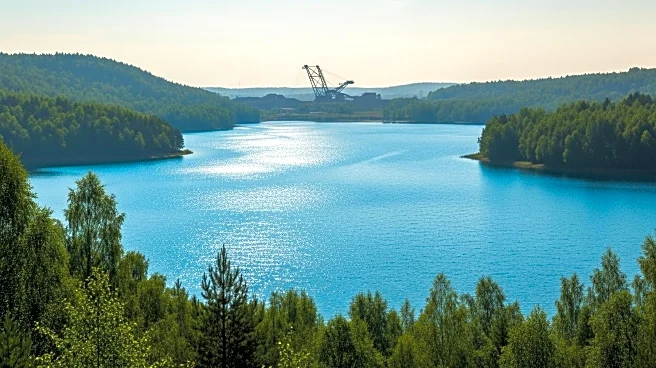What is the story about?
What's Happening?
A UN committee has accused Portugal of breaching an international treaty by withholding key information from the public regarding Europe's largest lithium mining project during its environmental licensing process. The project, led by Savannah Resources, is located in the Barroso region, a World Heritage site. The UN Aarhus Convention Compliance Committee found that Portugal's environmental agency, APA, failed to respect citizens' rights to environmental information and participation in the licensing process. Local residents and environmentalists have opposed the project, demanding the revocation of its license.
Why It's Important?
The UN committee's findings could have significant implications for environmental policy and public trust in Portugal. The criticism highlights the importance of transparency and public participation in environmental decision-making processes. The project is crucial for Europe's electric vehicle sector, as it aims to supply lithium for batteries. The controversy may affect the project's timeline and investor confidence, potentially impacting the region's economic development and environmental conservation efforts.
What's Next?
The findings may lead to legal challenges and demands for increased transparency and public involvement in environmental licensing processes. The APA may need to review its procedures and ensure compliance with international treaties. The project's future could be uncertain, with potential delays or modifications to address environmental concerns. Stakeholders, including local communities and environmental groups, may continue to advocate for stricter regulations and oversight.
Beyond the Headlines
The situation underscores the tension between economic development and environmental conservation, particularly in regions with significant natural heritage. It highlights the need for balancing industrial growth with sustainable practices and community engagement. The case may prompt broader discussions on the role of international treaties in shaping national environmental policies.

















